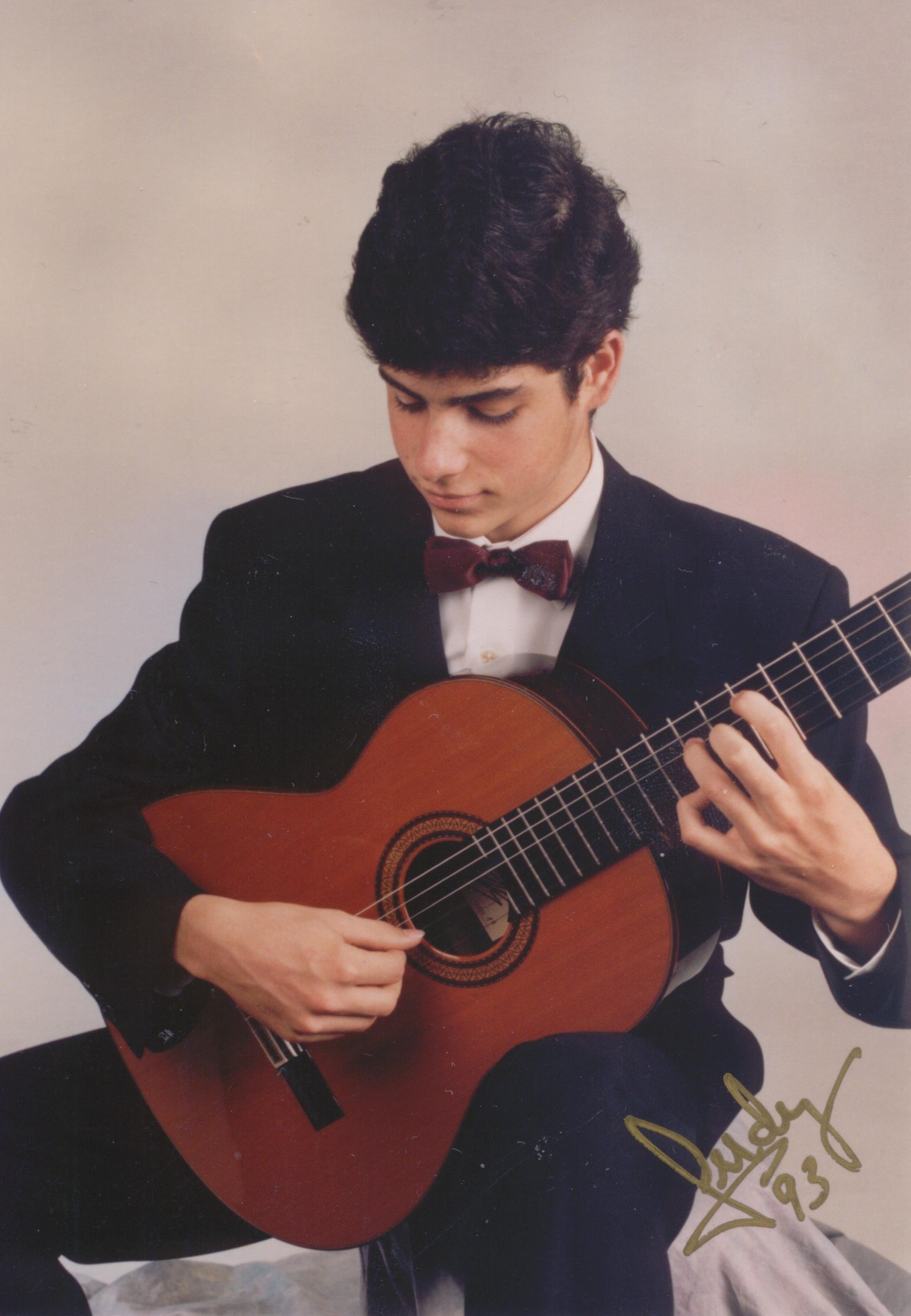The Power of the Stage
Many people have asked me when I realized I wanted to become a professional classical guitarist. The truth is that this epiphany was neither dramatic nor glamorous. The simplest answer is that this beautiful passion awakened in me the moment I stepped onto a stage for the first time.
I began this exciting life journey when I was six years old. My parents knew a guitar teacher in Logroño, and, I suppose that since both of them were educators, they wanted me to have a well-rounded education. So, I started playing the recorder first, and a few months later they bought me a guitar. I remember the night they gave me that little guitar: I started playing with it, adjusting the tuning pegs, and plucking the strings. To me, the guitar represented a new game, a source of fun.
With my first guitar teacher, Julián Allende, I started preparing for my first concert, a small event among Julián's students and their families. Even so, I was very excited. What I remember most are the feelings, and the sensations of that evening: the pure happiness I felt the moment I stepped onto the stage, the beam of that bright spotlight shining down me, and, above all, the indescribable feeling that an attentive audience generates. That day greatly defined my relationship with music and brought me much closer to my life's purpose.
I entered the conservatory shortly after that recital. The guitar came naturally to me, and, luckily for me, my parents made sure I routinely practiced and studied music theory every morning before going to school. They instilled in me the value of perseverance and effort since I was young, and I have built by career with those values.
I studied at the Conservatorio de Logroño from the age of seven, and I might have been one of the youngest students enrolled at that time. Because I started so young, I usually progressed two years ahead of my age group. Despite feeling like playing the guitar was the most natural thing I could do, the path wasn't always easy, and I had to dedicate many hours of my life to achieve what I have accomplished today.
Even though I had a natural talent for this instrument, it didn't negate the fact that there were subjects at the conservatory for which I didn't have the maturity or age to understand, such as advanced solfege. For those who don't know, solfege is the branch of music that studies music theory while also training a musician's ear to identify the notes of a piece, or its musical language, without necessarily having to read the sheet music.
I remember that in my early years at the conservatory, I had to repeat a music theory course. I felt very disappointed in those moments and I cried a lot. For me, dedicating so much time to studying and practicing the guitar and music sometimes took great effort. It meant hours of focusing meticulously on a subject that, eventually, became quite complex, and, understandably, I was disappointed. What kept me consistent in my young career was what I felt in my heart every time I picked up the guitar and started playing: something would begin to sing in my heart and fill me with light and inspiration. I believe it's that feeling that drove me and continues to drive me to keep this passion alive throughout my life.

